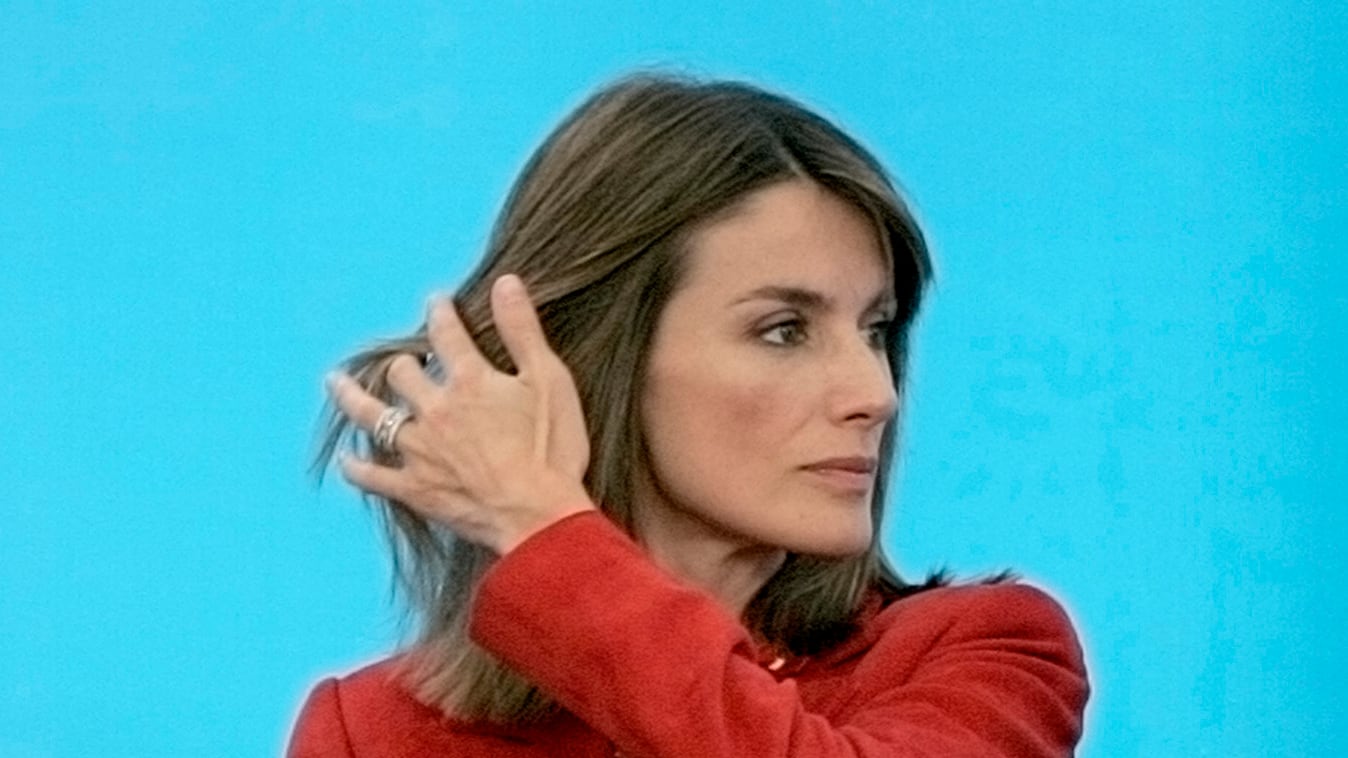It has long been known that corruption in Spain’s troubled royal family went all the way to the top. The financial affairs of the old kind, Juan Carlos, were a constant source of speculation.
Juan Carlos’s grandfather, Alfonso XIII whose image as a baby adorned Spanish coinage in the late 19th century as he was born after his father had died, fled the country during the civil war in 1931 and abandoned his estates and most of his fortune.
So, when Juan Carlos was put on the throne by Franco in 1975, he was said to be stony broke. Now, his personal wealth is estimated at as much as $2 billion.
However, it had been hoped that his abdication in 2013 in favor of his son Felipe and his glamorous wife Letizia would create what courtiers termed a “firewall” between the corrupt past and the stain-free future.
Now, however, that ambition has been gravely tarnished by the publication of a series of text messages between Letizia, the king, and the boss of a troubled national bank accused of corruption.
In the text conversation, the queen pledges her support for Javier Lopez Madrid—a close friend of the king—and calls him her “yoga mate.”
The iMessage conversation, revealed by the online daily eldiario.es, dates back to October 2014. The businessman is among dozens accused of misusing bank funds for their personal use.

The scandal allegedly saw executives and board members at Caja Madrid and Bankia—the group whose near-collapse sparked an EU bailout of Spain’s financial sector—use credit cards given out by the banks to spend some €12 million ($13 million) on themselves.
“I wrote to you when the story on the credit cards came out...” Letizia wrote in her message, according to El Diario.
“We know who you are and you know who we are. We know each other, like each other, respect each other. To hell with the rest. Kisses yoga mate (miss you!!!)”
(The hashtag #CompiYogui—the term in Spanish used by Queen Letizia in her message of support and loosely translated as “yoga mate”—swiftly became the biggest trending topic on Twitter in Spain.)
Lopez then thanked her. “In future I will take extra precautions, we live in a very difficult country and I will be even more aware of my conduct.”
The king himself then reportedly joined the conversation, texting, “We do indeed!”
The texts threaten to undo all the good work Felipe has undertaken since ascending to the throne in June 2014, and to plant a fresh seed in the public mind that the new generation of royals may in fact be just as keen to benefit financially from power as Juan Carlos was.
“Juan Carlos always had a reputation of being very worried about money,” one member of Madrid society tells The Daily Beast, “Cristina and her grasping husband have been thoroughly exposed. The worry is that Felipe and Letizia may be seen as no different—which is unfair, as they are actually very straight, some even say boring. But boring is just what Spain needs right now.”
Juan Carlos was always forgiven in the public mind for his financial and other peccadilloes, because of the great service he performed for Spain in rescuing the country from the dictatorship of Franco.
Juan Carlos was put on the throne by Franco who expected him to continue his authoritarian regime, but Juan Carlos double crossed him, and, soon after his enthronement, introduced reforms to dismantle the Franco-ist regime and begin the Spanish transition to democracy.
Later, Juan Carlos who rallied popular sentiment against a subsequent attempted fascist coup by Franco’s acolytes.
Money has always been the Achilles heel of the Spanish Royals, but when it was Juan Carlos, the older generation of Spaniards, who knew what he had done for the country, were prepared to look the other way.
However when Juan Carlos’s daughter, the Infanta Cristina, and her husband, Inaki Urdangarín, were accused of embezzling millions of euros in public funds through his charity the Noos Foundation, as Spain was in the grip of a savage recession, there was no such forbearance.
There is now a widespread feeling of satisfaction in Spain that the dashing Urdangarín and Cristina are at last actually on trial in a Spanish courtroom.
Urdangarín is accused of nine crimes including fraud and tax evasion with a combined possible jail sentence of 19-and-a-half years. Cristina is charged with two counts of being an accessory to tax fraud, which carry a combined sentence of up to eight years.

As the scandal broke, Juan Carlos took a decision of remarkable vision. He abdicated, in favor of his son Felipe and his wife Letizia, who both not only had a reputation for being whiter than white but are also intensely media-savvy; in 2000, Letizia was the winner of the Madrid Press Association’s Larra Award for most accomplished journalist under 30.
The king’s abdication was a tactically brilliant move to spike the guns of republicans who were eagerly awaiting Urdangarín’s trial and fully intended to use it to bring down the monarchy.
It was a wise move—Urdangarín made it clear this week that he is prepared to sell out the monarchy to save his own skin, telling the trial that the royal family was fully aware of the business deals of his not-for-profit organization.
The former Olympic handball player told the court: “I never would do anything without consulting (Carlos) García Revenga, for example, so that he would be up to date with everything that we were doing,” referring to a former royal secretary.
That Juan Carlos would be dragged into the corruption trial of his daughter and her husband was always expected. The damage limitation exercise of abdication was put in place to cover exactly that eventuality.
If Letizia and Felipe manage to make a fresh corruption scandal of their own, there will be nowhere left for the Spanish monarchy to hide from its many foes.






